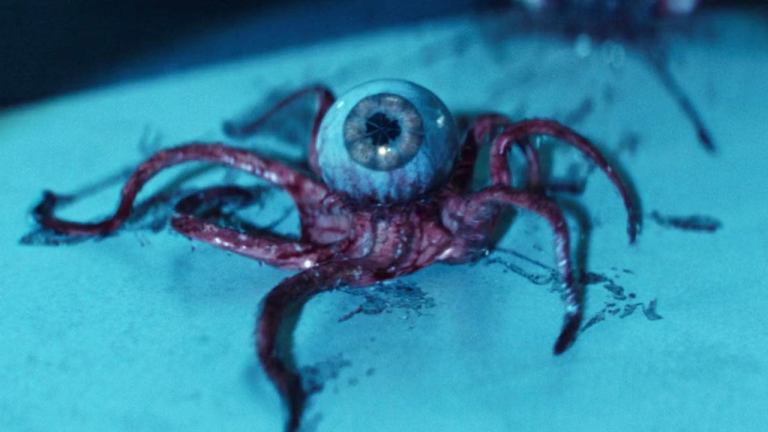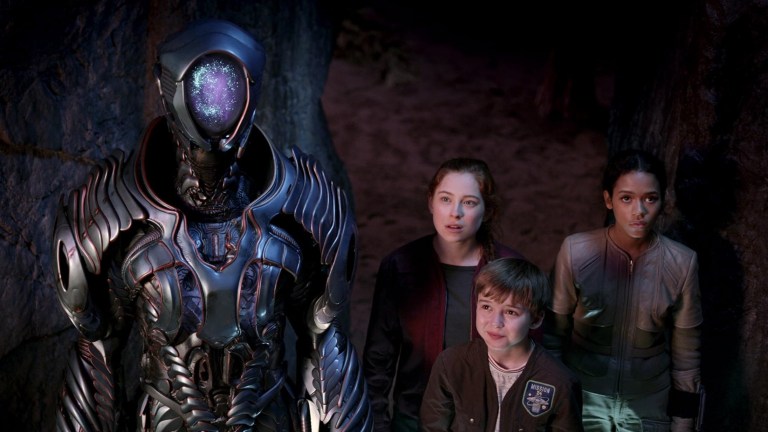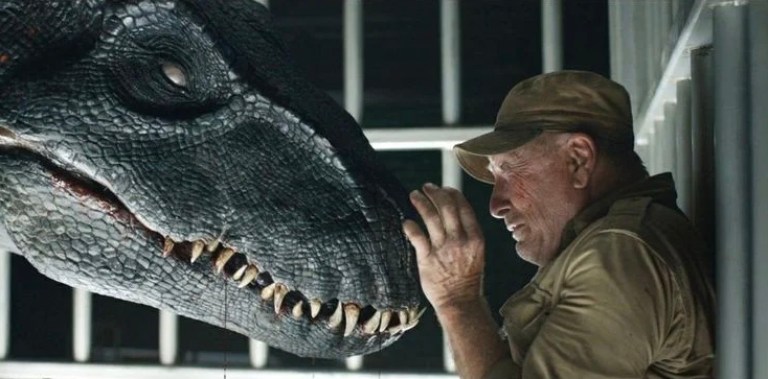
‘Alien: Earth’ Commits The Franchise’s Cardinal Sin, But It Works!
After watching the first six episodes of 'Alien: Earth,' it's official: this show is darn scary for all the right reasons.
What was the original tagline for 1979’s Alien? “In space, no one can hear you scream.” Also, do you remember director Ridley Scott’s three-word pitch for the movie? “Jaws in space.” You’ll notice there’s one common denominator here: space.
It’s not difficult to see why this concept works. The terror of being isolated with the so-called perfect organism out in the middle of nowhere is enough to give anyone nightmares. It’s like being stuck in the water with a shark; you’re in its domain and the odds are overwhelmingly against you. Alien: Earth breaks the cycle, bringing the Xenomorphs to our home planet. It’s a controversial decision that has had many fans claiming it breaks the franchise’s cardinal rule of keeping events in space, but here’s the shocker: it’s for the better here!
Putting a Xenomorph on Earth is frightening to think about
The Alien timeline is enough to melt minds, because it’s all over the place. In Alien: Earth, showrunner Noah Hawley takes the audience back to 2120, the same year the Nostromo leaves Earth but two years before the actual events of the original Alien film. The Weyland-Yutani exploration vessel USCSS Maginot crash-lands into a building owned by the Prodigy Corporation, who sends out its own team to investigate and contain the crash site – only to discover that this ship brought along a few extra guests to Earth. It’s no surprise what happens next, especially when you chuck Xenomorphs into the equation.
To the average person, common sense says, “Well, they’re killing machines, so why don’t you run in the opposite direction and never come back?” Two reasons. One, at this point in the timeline, most people aren’t aware of what a Xenomorph is, nor what it’s fully capable of doing. They see it as a fascinating creature, a new discovery of sorts. And two, have you seen the rate at which they breed? It truly will turn into Alien Earth in no time if they aren’t stopped, so what’s the point in running?
That’s what makes Alien: Earth so compelling and a different threat compared to the film series. A Xenomorph on our planet is far more horrifying than anyone could imagine. The creatures are driven by primal instincts, so all they do is mate, feed, kill, and repeat (to borrow a title from a long-forgotten Slipknot album). You can’t reason nor change the way they operate. Not only do humans have to worry about Facehuggers latching onto them and kickstarting the acid-laden evolution, but now too so do the animals. Alien: Earth demonstrates how the Xenomorphs seek any hosts on our planet, proving that it’s a free-for-all buffet with so many living creatures around. If they aren’t stopped as soon as possible, that’s it – it’s over for Earth. Time is of the essence.
You don’t only need to worry about the creatures
There’s also a bigger problem here: the corporations. In Alien: Earth, five big ones – Prodigy, Dynamic, Lynch, Threshold, and Weyland-Yutani – take over and rule the world. As expected, they put profit and legacy above people and personal safety. The only reason the Xenomorphs hit our planet in the first place is because these numbskulls want to study (and obviously monetize) the creatures in some way. Willingly, they bring the Xenomorphs here.
Consequently, they see the Xenomorphs as a valuable commodity and don’t want people to destroy them when the acid hits the fan. The corporations, such as Weyland-Yutani and Prodigy, turn their backs on humanity because of the allure of alien lifeforms. Even though they have the resources to stop the Xenomorphs once and for all, they choose not to, letting the creatures wreak havoc until they can figure out a way to capture them for their own purposes. And even then, they’re using toothpicks to create a cage to contain them.
So, remember that part mentioned above about the importance of stopping them quickly before they’re allowed to breed? Yeah, the corporations don’t care. They’re dealing with a ticking timebomb, but they’ll take all the time in the world. Casualties are seen as the byproduct of doing business and technological revolution. Scumbags.
Curiosity really does kill the cat
Showrunner Noah Hawley promised that he would explore the Alien mythology without being a straight-up rehash of the films, and that’s what he and his team do in Alien: Earth. The show expands on the question: can we, as a society, work together to solve problems that threaten our very existence? For the most part, the answer is yes – until you throw the people with money into the equation. Then, it’s a whole new ballgame where greed, apathy, and carelessness run amok.
Considering where the franchise goes, you’d expect for the characters of Alien: Earth to contain the threat on our planet. However, there are some twists and turns here that could change the way everyone looks at the Alien series forever. Stay tuned, because this show proves that the franchise’s greatest rule deserves to be broken in service of the bigger theme.
Alien: Earth hisses and claws its way onto FX and FX on Hulu on August 12, 2025.











